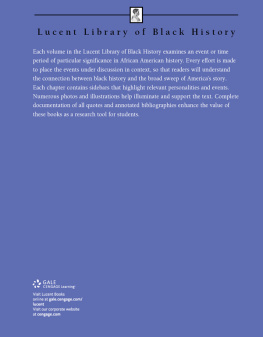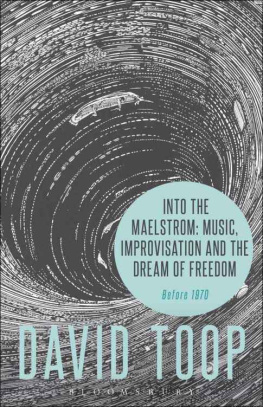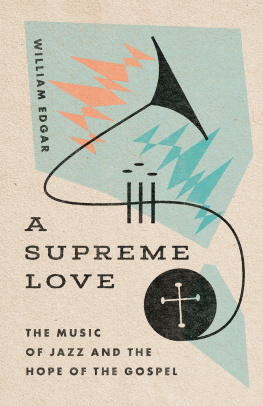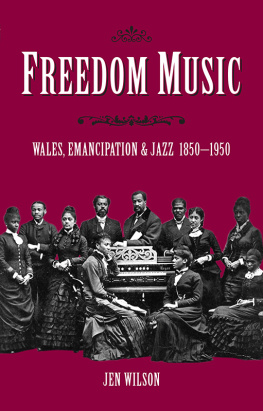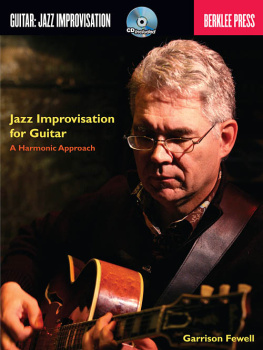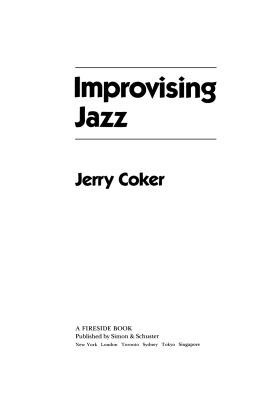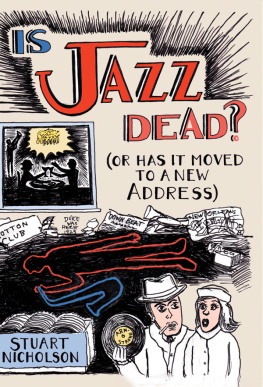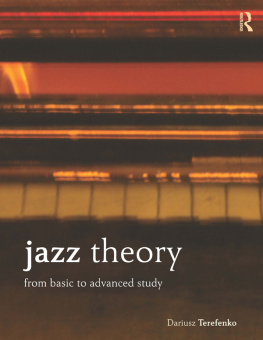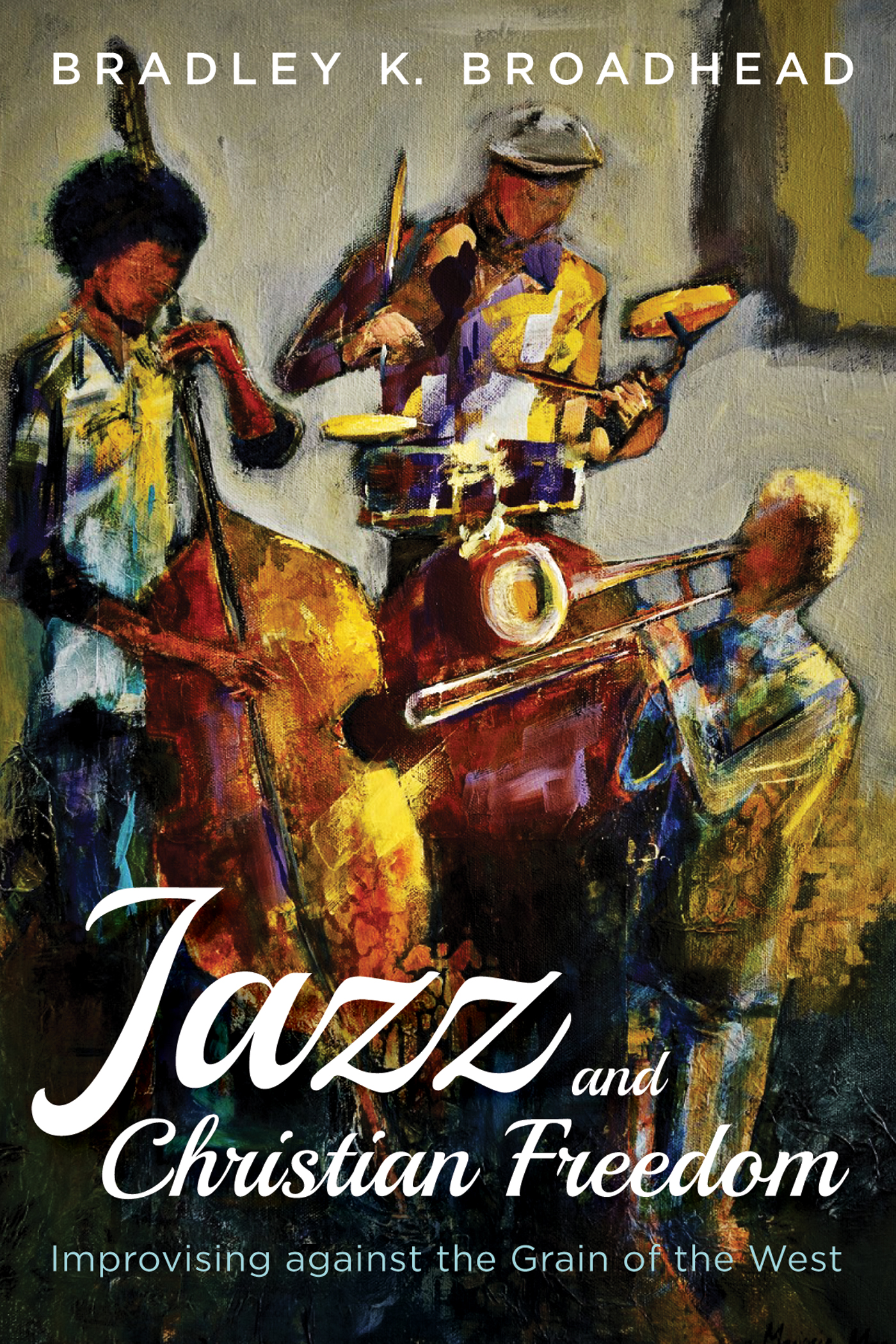I owe a debt of gratitude to the faculty at McMaster Divinity College for providing listening ears, resources, and good advice over the course of this project. My supervisor Dr. Steven Studebaker and second reader Dr. Wendy Porter provided assistance and advice not only over the course of writing the dissertation the present work is based on, but throughout my doctoral education. Dr. Mabiala Kenzo and Dr. Rick Love provided me with encouragement and support when the idea of connecting jazz and theology first occurred to me while working on my masters degree at Ambrose University College. My church families at Northside Bible Fellowship and Mission Baptist Church gave me valued friendships and opportunities to put my faith into practice. I would like to thank my family for their help and patience over the course of this project. My parents provided me with a great deal of support and encouragement over the course of my education. My children, Rowenna, Elowen, and Nigel, brightened my busy days and helped me to keep things in perspective. And my wife, Lealla, has been a patient, faithful, and loving companion on the ups and downs of this journey. There is no one I would rather have taken it with.
Introduction
C ontemporary Western society is becoming increasingly polarized. Political divisions on the left and right are widening. Unbridled subjective liberty and narrow fundamentalism pull away from each other in mutual loathing. What does freedom mean in such times? Does it entail celebrating and affirming every conceivable mode of self-expression, or do these modes of self-expression merely reflect more subtle forms of enslavement? More specifically, what does, or what can, Christian freedom look like in this context?
Freedom is central, not peripheral, to the Christian faith. My objective is to recover and reconstruct a theology of freedom for the Church that plots a way through the confusion about freedom and its enactment in the Western world. Just as the biblical authors often used parables and metaphors to get their point across, I use jazz improvisation as an analogy for Christian freedom and how this freedom might function in our contemporary world. I will demonstrate that jazz is an effective analogy for a Christian theology of freedom in a postmodern context.
So, what exactly, does jazz have to do with Christian freedom? Just as jazz improvisation relies on successfully navigating constraints such as the history and traditions of jazz, jazz theory, and musical instruments, so Christian freedom also relies on constraints such as the biblical canon, Church history, theology, and the Church itself. By understanding the freedom jazz musicians enjoy in making music together, we can better understand how Christian freedom might be enacted in daily life. But before jumping into this undertaking, I clarify what I mean (and do not mean) by Christian freedom by offering a couple of caveats. I also situate my project in relation to other works combining jazz and theology and explain how analogy works.
Christian Freedom and Providence: A Caveat
By the phrase Christian freedom, I do not mean speculation on whether or to what extent human beings are free in relation to Gods sovereignty. I do not propose a solution to the question of how (or whether) human free will relates to divine providence. In fact, I am sympathetic to Jacques Elluls view that Holy Scripture absolutely does not help us to resolve the problem of metaphysical freedom or determinism.
For the purposes of my discussion, it does not matter whether or not classical theism is true, because (at least from a human perspective) God reveals himself as someone who interacts with human beings, responding to their acts and urging them to take the path of righteousness instead of the path of wickedness (e.g. Deut :; Ezek ; Rom :). Whether or not God actually changes his mind in response to human action, from a human perspective on the human-divine relationship, he can and does. From the story of Hezekiahs pleading with God ( Kgs :) to James urging his readers to pray for God to act (Jas :), Scripture portrays God as someone who is willing to respond to his people. Scripture appears to uphold the agency of Gods creatures in choosing to do his will or in choosing their own way.
In my use of the term, Christian freedom first entails being liberated by God from the constraints of the self and the powers of this world into the constraints of the Kingdom of God. Second, it involves creatively improvising with the constraints of this kingdom. Among other things, these constraints include Gods revelation and the continuing work of the Holy Spirit. Improvising with these constraints is the enactment of Christian freedom.
Christian Freedom and Political Freedom: A Second Caveat
A second caveat is that Christian freedom, while overlapping in certain respects with political freedom as it is thought of in the West, cannot be conflated with it. Political freedom in the West is closely associated with the rights (freedoms) which a person or a group of people is able to exercise in a political community.
Political freedom overlaps with Christian freedom because political communities have implications for Christians attempting to exercise their freedom. As the Apostle Paul points out, the governments use of coercive force in a state can be a positive counter to any who threaten the common good, checking oppressive forces and providing space for those within the state to choose a set of constraints in which to operate (Rom :). Yet it cannot be grounded in coercive power; Christian freedom is grounded in the Kingdom of God, not any earthly kingdom. Exercising Christian freedom may entail challenging political structures, but the moment one exercises coercive power over another, one is no longer exercising Christian freedom.
For a Christian, belonging to this Kingdom must come prior to all other commitments and sources of identity (Matt :). Christians cannot afford to confuse their cultural and political loyalties with their prior commitment to the Kingdom of God. At the same time, Christians cannot rightly allege commitment to the Kingdom of God while being ignorant of racial, cultural, and social tensions and divisions that operate in the world in which they live. An informed commitment to the constraints of the Kingdom of God allows, and may even insist upon, acts of Christian freedom that transgress the laws and expectations of the world.
While affirming the importance of working out the implications of Christian freedom in and for a political community, the present work focuses primarily on Christian freedom as it is exercised in the local church.
The Intersection between Jazz and Theology
The fertile space at the crossing between jazz and theology is quietly yielding its fruit. Jazz traces its roots in part back to African-American spirituals, and the influence of the black church was impressed into the music almost from its inception. While I personally find the growing body of literature on jazz and theology fascinating, much of it is not directly related to my own project of using jazz as an analogy for a Christian theology of freedom. Those interested in exploring the literature on jazz and theology further can find my assessment of it in the appendix. Here, I briefly trace some early developments in the conversation between jazz and theology and then focus in on Jeremy Begbies work on improvisation and freedom.


